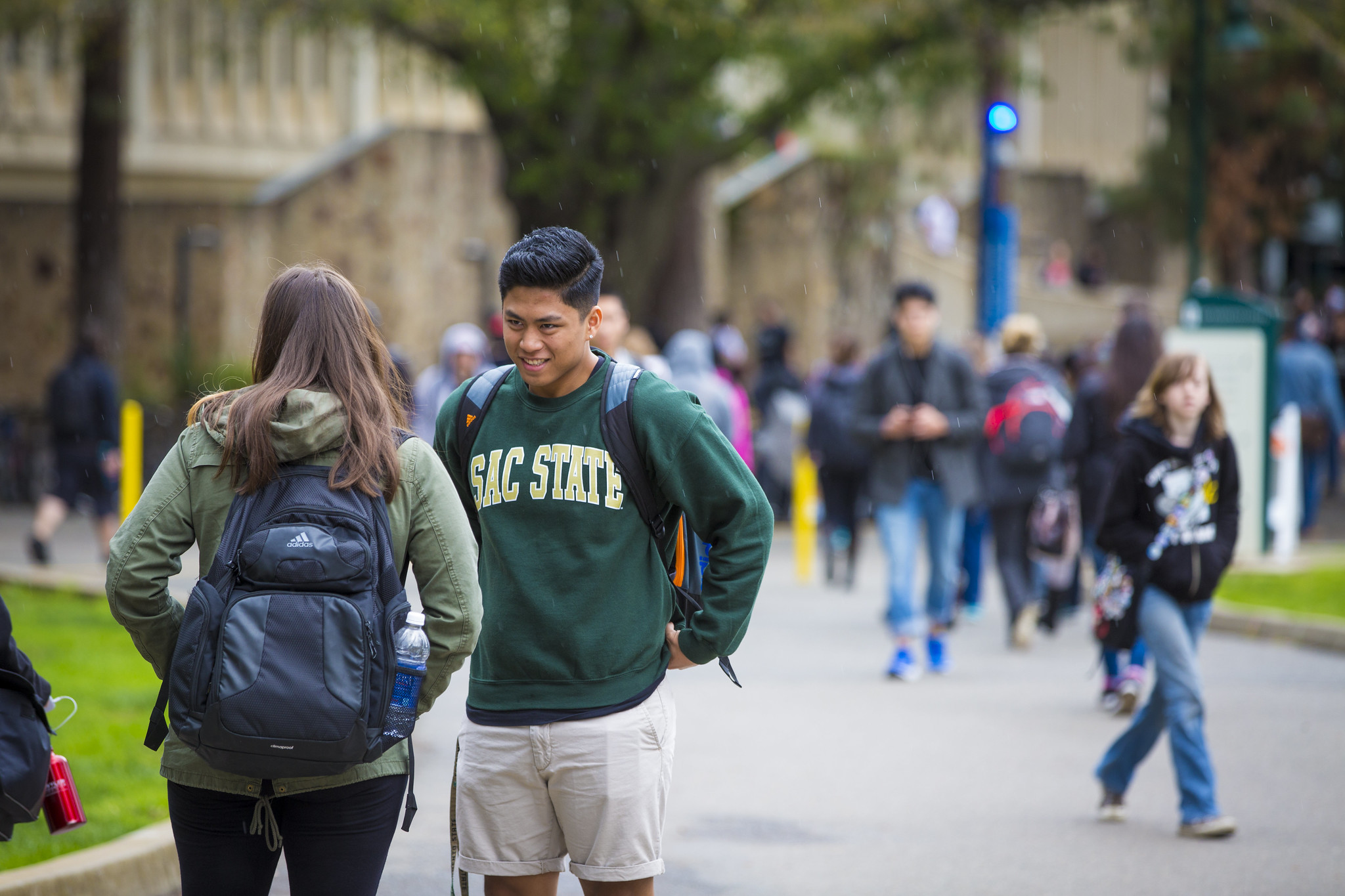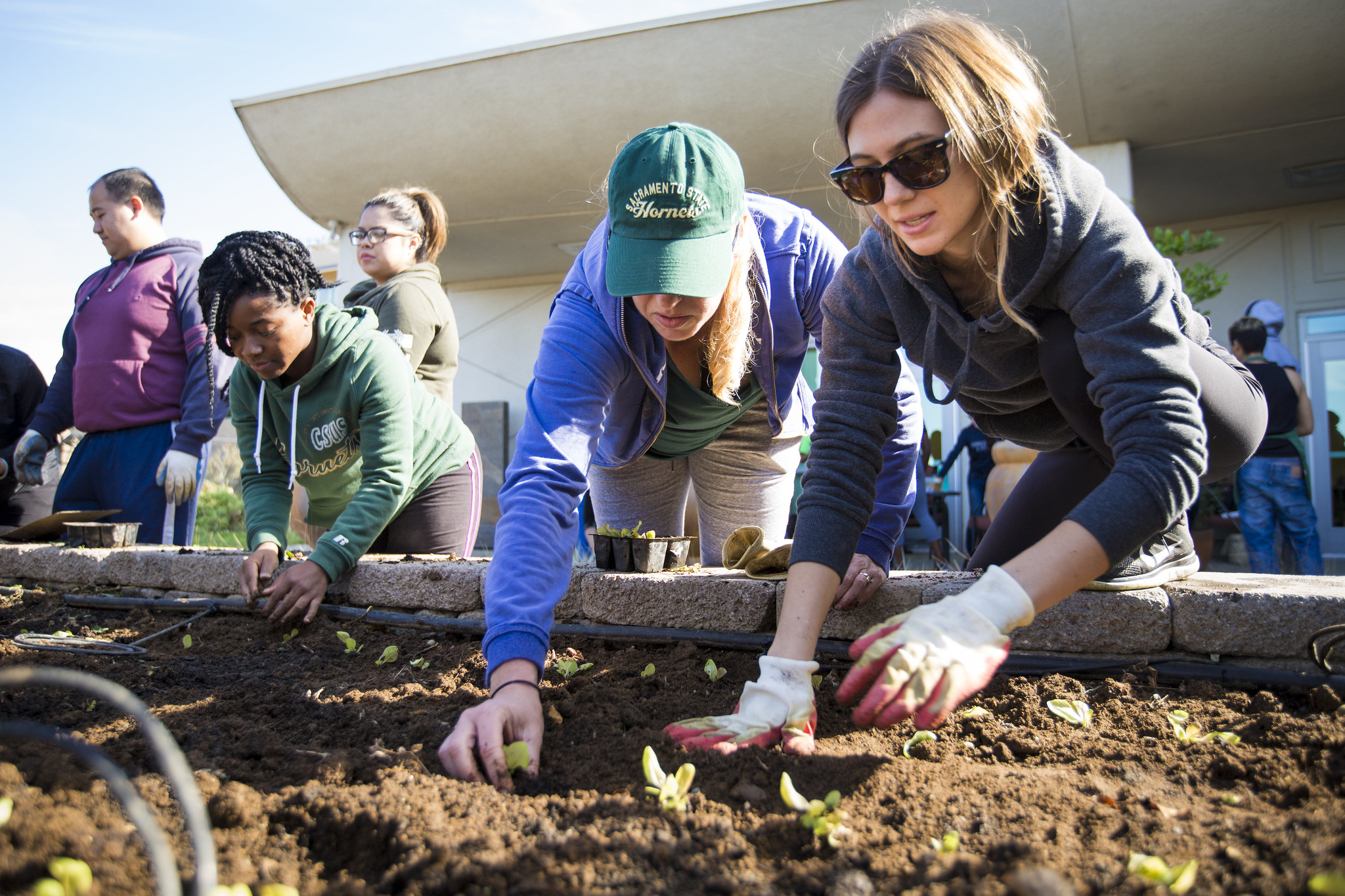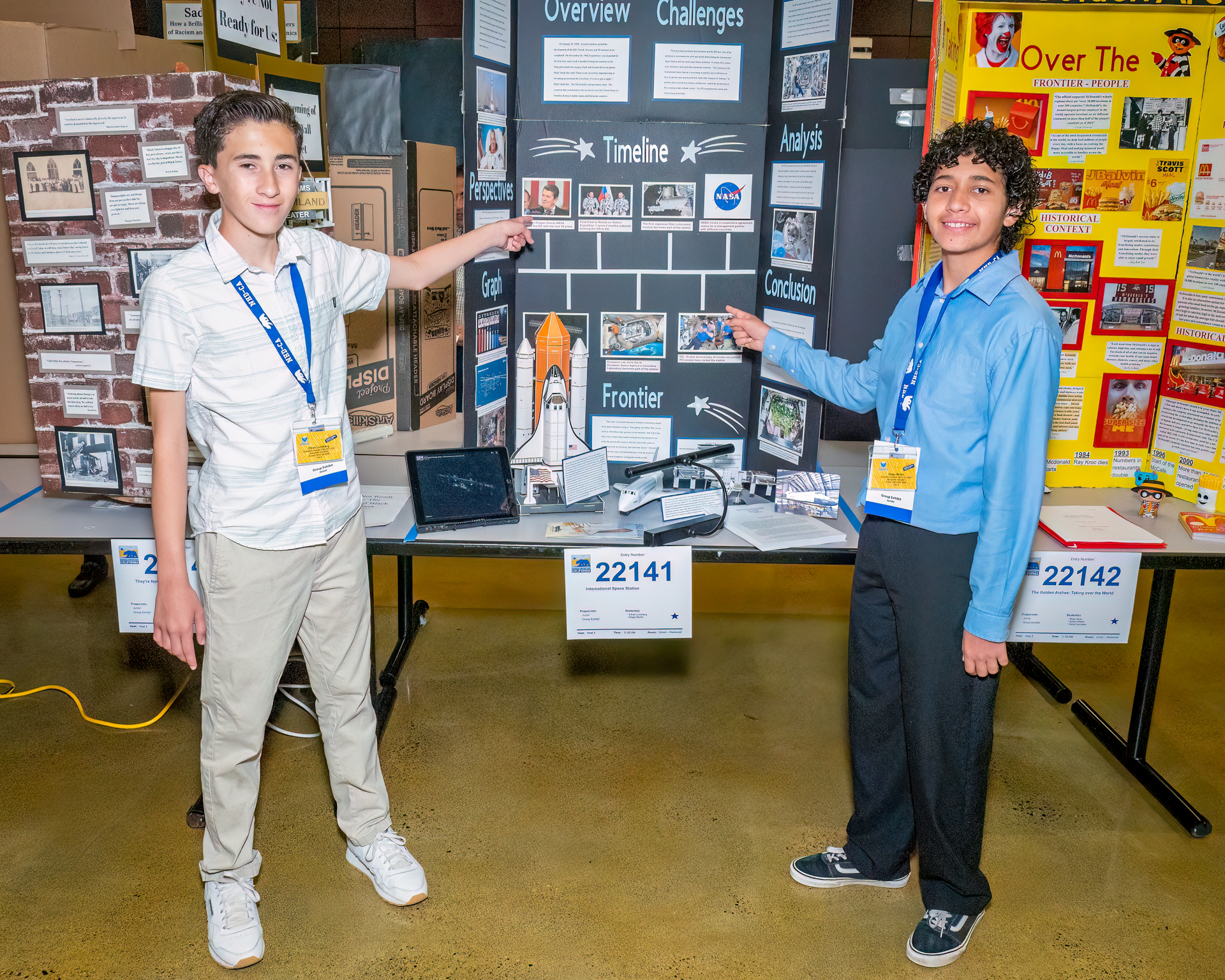Story Content
New grant boosts Sac State training for area K-12 educators to teach computer science

April 20, 2023
As society rapidly adopts new technologies, such as artificial intelligence, understanding the science behind them is increasingly crucial.
“We're so reliant on (technology), and so, shouldn't you have the power to understand how it works, why it works that way?” asked Anna Baynes, assistant professor of Computer Science at Sac State. “Any industry you go into, you're going to have to use a computer.”
Key to that understanding is high-quality K-12 computer science education, and since 2021, Sac State’s Computer Science Supplementary Authorization (CSSA) program has trained area educators to teach the subject.
That program has received new funding from the National Science Foundation to continue its work providing local classrooms with diverse and highly qualified computer science teachers.
The $360,000 Computer Science for all (CSForAll) grant will fund partial tuition reimbursement for up to 10 teachers per year over the next several years. The grant also will fund the program’s growth as it evolves. Previously, the CSU Chancellor’s Office paid for the reimbursements.
“Businesses that traditionally don't involve computer science are now recruiting our computer scientists and computer engineers. In order to meet that demand, we need to be graduating more computer scientists and computer engineers.” -- Kevan Shafizadeh, dean of the College of Engineering and Computer Science
The CSForAll grant is part of the NSF’s effort to allow students to participate in computer science and computational thinking education. Four CSU campuses – Sac State, San Francisco State, San Jose State, and Sonoma State – received a total of $2 million in grant funding.
“There's a big push to provide these (programs in the CSU), because that's where we have a lot of teacher credential programs,” said Baynes, who was among Sac State faculty who developed the program in 2021 and partnered to obtain the grant. “With the CSSA program, we're trying to make more teachers who have that background (in computer science), so they feel confident in the classroom.”
CSSA is a collaboration among the College of Engineering and Computer Science and the College of Education, along with the College of Continuing Education, which administers the program.
Credentialed teachers who complete the fully online program can apply for a “supplementary authorization” allowing them to teach computer science in K-12 settings even if their undergraduate degree was not in the field.
In addition to Baynes, the faculty members behind the program include Computer Science Professors Jun Dai and Xiaoyan “Sherry” Sun; Deidre Sessoms, associate dean for Instruction and Student Success in the College of Education; and Teaching Credentials Professor Chia-Jung Chung, who ensured the program’s curriculum was relevant to current educators.
“You don't teach something to a 22-year-old the same way you teach it to a 12-year-old,” Sessoms said. “(Chung) was able to help our faculty in Computer Science learn how to teach a teacher with methods that match what the teacher is going to use, that are engaging, that are focused on problems that youth care about, that are interactive.”
From the beginning, the CSSA program was designed to offer flexibility to full-time K-12 teachers for whom attending classes while working can be challenging, said program manager Jessika Morrison. The program runs from June through December and includes four courses, taken one at a time rather than concurrently, and scheduled in the evening.
“While … the courses are online, they do have specific meeting dates, which have synchronous components,” Morrison said. “So, the students don't really feel like they're just doing their own thing online. They feel supported in that it's kind of a cohesive class with other teachers … (which) lends to a great deal of community.”
The CSSA program may also benefit Sac State and regional employers. Having more K-12 educators teaching computer science could attract a larger and more diverse group to major in the field in college, said Kevan Shafizadeh, dean of the College of Engineering and Computer Science.
“Most people don't realize that computer science and data analysis is becoming more embedded in everything,” Shafizadeh said. “Businesses that traditionally don't involve computer science are now recruiting our computer scientists and computer engineers. In order to meet that demand, we need to be graduating more computer scientists and computer engineers.”
Beyond that, like all STEM (science, technology, engineering, and mathematics) fields, learning computer science helps K-12 students develop skills such as problem solving and critical thinking, said Sessoms.
“Clearly, we live in a technologically complex world,” she said. “You need to learn how to analyze data, and you need to understand … how to reason quantitatively, how to make sense out of the statistics that you read every day about the climate, about the world. And computer science skills are a really great way to teach that.”
For more information on the CSSA program, which is accepting applications through May 26, visit the program’s webpage.
Media Resources
Faculty/Staff Resources
Looking for a Faculty Expert?
Contact University Communications
(916) 217-8366
communications@csus.edu


